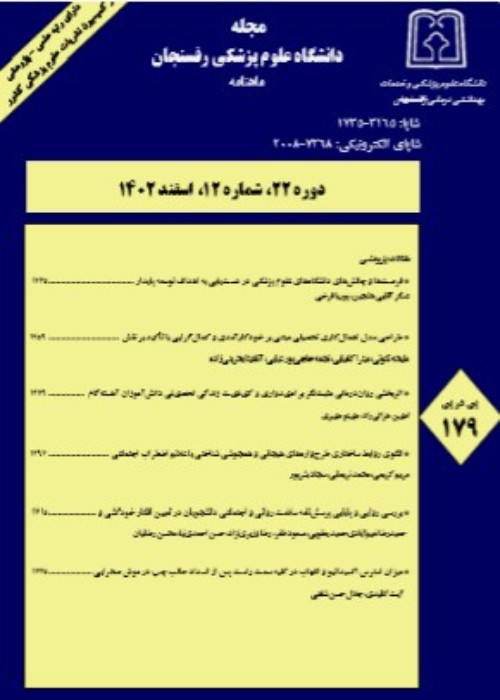The Mediating Role of Emotional Intelligence in the Relationship between Personality Traits and Marital Stability in Family Counseling Centers in Tehran in 2020: A Descriptive Study
Personality traits are important factors in marriage and consequently marriage stability. Managing emotions has a unique role in this stability. The aim of the present study was to determine the role of emotional intelligence in the relationship between personality traits and marriage stability in family counseling centers in Tehran in 2020.
The current research is descriptive. The statistical population was all the married people referred to the counseling centers of the 2nd and 5th regions of Tehran, and 345 men and women were selected by convenience sampling in 2020 to participate in the research. Data collection tools were Edwards et al.'s Marital Instability Questionnaire, Bradberry-Greaves’ Emotional Intelligence, and revised form of NEO-FF-I personality scale. Structural equation modeling (SEM) and path analysis were used to analyze the data.
The results showed that there was a positive and significant path coefficient between emotional intelligence and marriage stability (β=0.376, p<0.010). Also, among the personality traits, there was a negative and significant total path coefficient between neuroticism (β=0.397, p<0.010) and marital stability, and there was a positive and significant total path coefficient between agreeableness (β=0.211, p<0.010) and extroversion (β=0.244, p<0.010) and marital stability. It was found that the indirect path coefficient between neuroticism (β=-0.133, p<0.010) and marital stability was negative, and between agreeableness (β=0.062, p<0.010), extroversion (β=0.116, p<0.010), and conscientiousness (β=0.046, p<0.010) and marital stability was positive and significant.
Emotional intelligence mediates the relationship between neuroticism and marriage stability in a negative way and the relationship between the three factors of extroversion, conscientiousness, and agreeableness and marriage stability in a positive way. In line with the results, holding educational workshops to recognize the personality traits of married people and training emotional intelligence skills can lead to increasing family stability.
- حق عضویت دریافتی صرف حمایت از نشریات عضو و نگهداری، تکمیل و توسعه مگیران میشود.
- پرداخت حق اشتراک و دانلود مقالات اجازه بازنشر آن در سایر رسانههای چاپی و دیجیتال را به کاربر نمیدهد.



